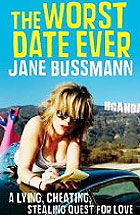
The problem with books on Africa - and writing about the continent in general - is that they tend to take themselves rather too seriously. Po-faced is apparently the best way to observe the continent's daily struggles with war, famine and disease. Never mind that so many of the underlying causes are the result of astonishing levels of corruption, breath-takingly arrogant leadership and inept and ill-considered charity, all we can do is tut in a concerned fashion and mutter self-serving platitudes. Jokes will not do.
But how much more honest it would be to poke fun at the absurd sight of fat aid workers filling their boots at hotel buffets after a long day distributing food, or fat politicians who lie so badly that they contradict themselves from sentence to sentence. We don't, of course, because it's Africa. We know too much history and arrive with too much baggage to recognise the absurdities of the place as, well, absurdities.
Jane Bussmann arrives with largely inappropriate baggage - lip plumping cream and stilettos - but in her romp around Uganda broadly manages to keep her humour on the right side of the satire/bad taste divide. Bored senseless by anodyne or anorexic movie stars she ditches her job as a celebrity hackette in Los Angeles to travel to Uganda in search of a date with John Prendergast. To us Africa hands he is the former White House adviser who now fronts various peace initiatives. To Bussmann, he's a a hero, the man who travels to Africa to end wars - and who looks desperately sexy in an Arran jumper.
And so starts her odyssey through one of Africa's longest running civil wars. She manages to arrive in Uganda just as Prendergast has returned to the US. Instead she meets a cast of characters who have been caught up in Joseph Kony's bizarre armed struggle. She meets children forced to fight for the cultish leader, girls kept as sex slaves and the army commanders who claim to be winning the war while not very secretly profiting from the conflict. Her romantic adventure takes her to the camps where millions of people live in fear of Kony's Lord's Resistance Army.
Her story is all delivered with a coruscating sense of the absurd which morphs gradually into a volcano of outrage at how the world lets this happen. Unburdened by years as an Africa hand or the need to be taken seriously to make her point, she manages to draw attention to the odd and the bizarre with mischievous jokes which never lose sight of the injustice she is chronicling. Along the way she shows her neat gasp of the conflict and captures brilliantly the minor episodes that make any journey in Africa all worth the effort.
When her computer is stolen, she turns up at the local police station.
The desk sergeant came in, a skinny cop in gumboots. His stripes were held on his jacket with staples. We both heard a terrible screaming from the cells to his left. Only one of us turned.
"Don't worry, it's the lunatics," said the desk sergeant. "Later we give them an injection. Can I help you?"
"Yes. Someone's stolen my computer," I said.
"Where is he I'll shoot him in the head!"
"Can I just get a police report?"
"Oh! It makes me so angry!" he said.
"Yes, but I don't want you to shoot him -" I said.
"Then I'll whip him and whip him and whip him-"
"What about the police report?" I ventured.
"Have you got one?" he said.
"No, I hoped you might have..."
"Madam," he said, suddenly strict, "we've only got one police report and we need it."
That exchange brought memories flooding back.
Occasionally she misfires. There are several genital jokes too many. But this is a highly entertaining read and one that might just introduce a new type of reader to the horrors of Uganda's civil war.

What do you think?